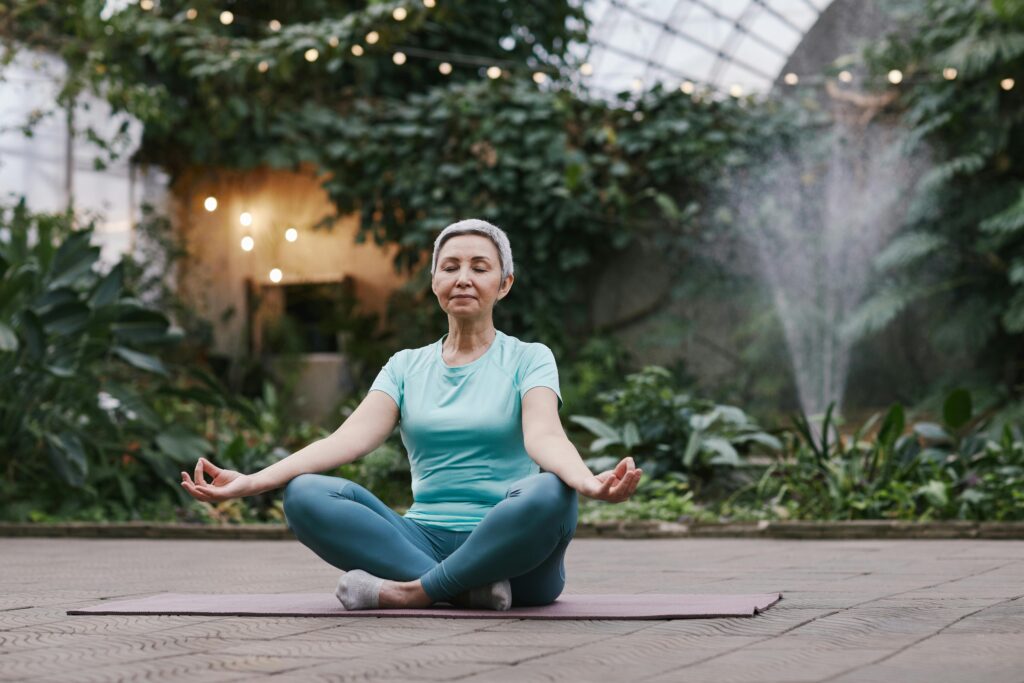Osteoarthritis and rheumatoid arthritis are painful and debilitating diseases that affect many of us as we age; however, there are special considerations to help you continue to lead an active lifestyle without feeling like you cannot engage in your favorite activities. First, it’s helpful to understand the difference between osteoarthritis and rheumatoid arthritis. Osteoarthritis is the wear and tear on a joint, while rheumatoid arthritis is a chronic autoimmune disease that can affect multiple areas and cause fatigue.
Nonetheless, if you have been diagnosed with one or both conditions, here are a few tips to start to get you moving again, stay moving, and get back to doing the things you love while feeling stronger and lessening pain. Along with these tips, I will explain the adjustments to make for those with osteoarthritis and rheumatoid arthritis.
Primarily, why incorporate strength, cardio, and mobility into your routine if it will cause pain? Studies have shown that doing this helps retain muscle mass, increases bone density, and supports the health of the joints (Cooney, J. K., et. al. 2011). All are critical for those who have osteoarthritis and rheumatoid arthritis. I outline general recommendations in the article and working with a professional who understands these diseases will be able to better guide you in getting started or maintaining a plan.
Low-Impact Exercise
For osteoarthritis, including activities such as walking, swimming, or cycling will allow you to maintain or improve your cardiovascular health while reducing the impact on your joints to prevent an increase in inflammation (Golightly YM, et al, 2012). In addition to the cardiovascular benefits, you will maintain and build strength by engaging in these activities. General guidelines for getting started: 10-20 minutes, 3-5 times a week.
Strength Training
One of the best ways to build strength and protect and support the affected joints is by adding progressive strength training to your fitness routine (Turner MN, et al, 2020). Progressive strength training gradually increases resistance, volume, and frequency to challenge muscles, stimulate growth, and enhance overall strength and fitness. It employs incremental weight, varied exercises, and periodization to promote sustained muscular strength and endurance improvements. General guidelines for getting started: use TheraBand’s, weight machines, or free weights, 2-3 sets, 8-10 repetitions per set.
Mobility
Mobility assists the joints in maintaining or increasing the range of motion, preventing stiffness. Arthritis increases the stiffness of joints, limiting the range of motion and the ease of joint movement. Yoga, Pilates, Tai Chi, or other gentle stretching exercises are great. General guidelines for getting started: 10-15 minutes each session, 2 days per week.
On the other hand, how do you implement these three fitness practices into your daily routine?
Plan
If you have a diagnosis of osteoarthritis and rheumatoid arthritis, you should have a plan tailored to your specific diagnosis and location of the arthritis. In addition to addressing the areas affected, an individualized plan meets your overall health and fitness level. I recommend working with a healthcare provider, physical therapist, or a qualified personal trainer to create a safe and effective exercise routine.
Whether you have a custom plan or not, you are the authority on your body. Be aware of how the exercises are impacting your body and your joints. Modify movement patterns to complement your body and, if necessary, avoid specific movements. There are many options for moving and strengthening your body. Don’t feel you need to stick with an exercise routine that does not meet you or your body where it is at now.
Diet
Granted, there are several great diet supplements on the market that can complement a fitness routine for those with osteoarthritis and rheumatoid arthritis. Incorporating Mia Vita® Hyaluronic Acid as an oral dietary supplement can be a valuable addition to a comprehensive approach. Hyaluronic acid is renowned for its joint-nourishing properties, potentially aiding in reducing discomfort and improving joint mobility. This supplement, available at Mia Vita® Hyaluronic Acid, may complement a well-rounded strategy that includes an anti-inflammatory diet. Prioritizing foods such as fatty fish, fruits, vegetables, and whole grains can contribute to mitigating inflammation. Additionally, the consideration of omega-3 supplements, known for their anti-inflammatory benefits, and ensuring adequate intake of vitamin D and calcium for bone health are essential components.
References:
- Susan L. Hughes, Rachel B. Seymour, Richard T. Campbell, Gail Huber, Naomi Pollak, Leena Sharma, Pankaja Desai, Long-Term Impact of Fit and Strong! on Older Adults with Osteoarthritis, The Gerontologist, Volume 46, Issue 6, December 2006, Pages 801–814, https://doi.org/10.1093/geront/46.6.801
- Cooney JK, Law RJ, Matschke V, Lemmey AB, Moore JP, Ahmad Y, Jones JG, Maddison P, Thom JM. Benefits of exercise in rheumatoid arthritis. J Aging Res. 2011 Feb 13; 2011:681640. doi: 10.4061/2011/681640. PMID: 21403833; PMCID: PMC3042669.
- Golightly YM, Allen KD, Caine DJ. A comprehensive review of the effectiveness of different exercise programs for patients with osteoarthritis. Phys Sportsmed. 2012 Nov;40(4):52-65. doi: 10.3810/psm.2012.11.1988. PMID: 23306415; PMCID: PMC4077018.
- Turner MN, Hernandez DO, Cade W, Emerson CP, Reynolds JM, Best TM. The Role of Resistance Training Dosing on Pain and Physical Function in Individuals with Knee Osteoarthritis: A Systematic Review. Sports Health. 2020 Mar/Apr;12(2):200-206. doi: 10.1177/1941738119887183. Epub 2019 Dec 18. PMID: 31850826; PMCID: PMC7040944.
- High Intensity and Low Intensity Strength Training are Good for Knee Osteoarthritis – Lifestyle Medicine. https://longevity.stanford.edu/lifestyle/2022/10/20/high-intensity-and-low-intensity-strength-training-are-good-for-knee-osteoarthritis/
Website: https://www.kat.fit/
Kat is an award-winning certified personal trainer and has been transforming lives both in-person and online for over a decade. With a focus on women’s fitness, she excels in guiding clients through the various stages of life, from pregnancy to perimenopause. Kat’s unique philosophy challenges the notion that the body is broken; instead, she believes in its incredible capability to gain strength at any age. Her expertise and passion create a supportive environment, empowering individuals to excel in their fitness journeys. She designs personalized programs from her extensive online database of workouts and exercises and delivers them to her clients using her customized app.
